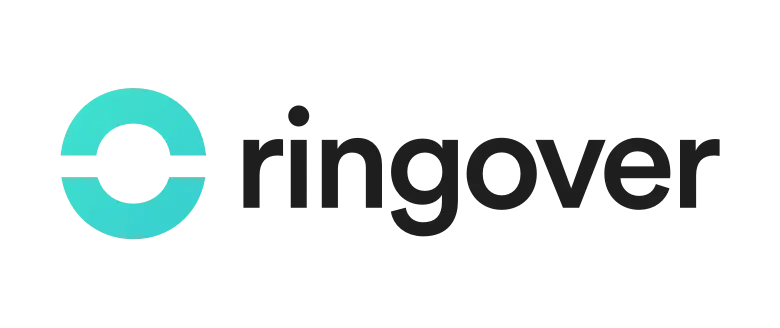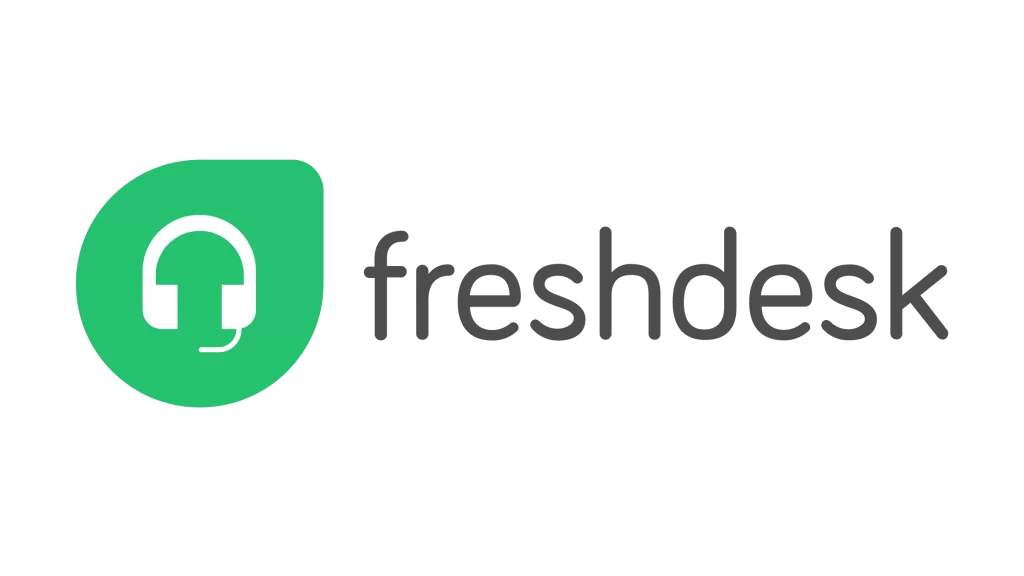We use cookies to personalize content, provide social media features and analyze traffic. You can get more information by visiting our cookie policy. You can configure cookies without accepting them by clicking hither.
The best virtual phone systems in 2026:
- Harmonix AI
- Fonvirtual
- NFON
- VoIPstudio
- 3CX
- Zadarma
- Ringover
- Cloudtalk
- Aircall
- Freshdesk Contact Center
- Nextiva
- Ooma Office
In an environment where efficiency and response speed are key, having a virtual phone system has become a necessity for many businesses.
This technology allows you to manage calls and other communication channels from anywhere, with no physical infrastructure or technical complications required.
Unlike traditional PBX systems, cloud-based solutions offer greater flexibility, cost savings, and a smoother user experience.
Since they can be operated from various devices, work teams can stay connected and productive at all times.
Another major benefit is the ability to centralize communication in one place, integrating tools like calls, messages, and emails.
This gives a global view of each customer and improves decision-making with up-to-date, complete information.
If your company is still using only one communication channel, you’re missing a huge opportunity. Integrating all channels into one platform brings consistency, agility and productivity.
In the next sections, we’ll explain how a virtual phone system works, what advantages it offers compared to other solutions, and why it can be a turning point in client management and commercial operations.
The 12 Best Virtual Phone Systems in 2026
1. Harmonix AI

Harmonix AI is not a CRM or a typical phone system.
It’s an AI-powered layer that installs over any CRM, enhancing its functionality without replacing it.
Its main strength lies in centralizing all communication channels, calls, WhatsApp, email, LinkedIn, video calls, and analyzing them using AI to extract real value from every interaction.
Thanks to its omnichannel approach, Harmonix enables businesses to make better decisions, personalize interactions, and automate tasks, making users faster and more productive.
All of this happens within their existing CRM, with no complex integration projects.
Harmonix transforms the CRM into a powerful daily tool, turning every conversation into data and business transactions.
7 Exclusive Advantages of Harmonix AI:
- Installs over your current CRM (Salesforce, Dynamics, SAP...), without replacing it
- Automates routine tasks like logging calls, emails or chats
- Integrates calls, WhatsApp, LinkedIn and more, all in one environment
- Suggests next steps and personalized content after each interaction
- Provides market insights and sales forecasts with AI
- Improves productivity by up to 60% through communication digitalization
- Accessible from any device, ideal for hybrid or remote teams
2. Fonvirtual

Fonvirtual offers a cloud-based virtual phone system, ideal for businesses seeking flexibility.
- CRM and AI integration for efficient service
- Handle calls from anywhere, no physical installation needed
- Multichannel: voice, chat, video on a single platform
- Customizable interactive voice responde (IRV) and queue menus
3. NFON

NFON is a German solution focused on quality and operational continuity.
- Guaranteed high availability (99.9%)
- End-to-end encryption for maximum security
- Compatible with Microsoft Teams and CRM tools
- Easy scalability for growing businesses
4. VoIPstudio

VoIPstudio is a cost-effective, powerful option for SMEs.
- Real-time management via a simple web interface
- Call recording and conferencing features
- Global virtual numbering
- CRM and business app integrations
5. 3CX

3CX stands out for its customization and internal control capabilities.
- Software-based phone system, no hardware required
- Advanced contact center functions like queues and reports
- Flexible hosting (on-premise or cloud)
- CRM integration and online collaboration tools
6. Zadarma

Zadarma offers a free phone system with competitive features.
- Virtual numbers from 100+ countries
- Free call recording and statistics
- CRM integration and simple configurations
- Ideal for startups and small businesses
7. Ringover

Ringover provides a complete, ready-to-use virtual phone system.
- Unlimited calls and efficient call handling
- CRM and AI tool integrations
- Features like IVR, click-to-call and recordings
- Fully remote and cross-platform use
8. CloudTalk

CloudTalk is a cloud-based virtual PBX designed for sales and customer service teams looking to boost productivity with simple yet powerful tools.
- High-quality VoIP calls without drops.
- Integration with over 30 CRMs and tools such as HubSpot or Zendesk.
- Smart routing and call recording features.
- Real-time analytics dashboard to monitor team activity.
9. Aircall

Aircall stands out for its ease of use and quick setup, ideal for companies that need to get started within hours.
- 100% cloud-based setup with no hardware required.
- Direct integration with CRMs like Salesforce, Pipedrive, or Zoho.
- Live monitoring and real-time call listening features.
- Customizable call queues and unified inbound/outbound call management.
10. Freshdesk Contact Center

Formerly known as Freshcaller, this is a flexible and scalable option for businesses already using the Freshworks ecosystem or looking for an adaptable solution.
- International calling with local numbers in over 90 countries.
- Advanced interactive voice response “IRV” to route calls based on customer profile.
- Automatic call recording and secure storage of interactions.
- Detailed reporting to track team performance.
11. Nextiva

Nextiva is a robust virtual PBX that combines VoIP telephony with business collaboration tools.
- Unlimited calls with HD quality.
- Integration with platforms like Microsoft Teams, Salesforce, or G Suite.
- Built-in video conferencing and internal messaging.
- Centralized admin panel to manage users, extensions, and permissions.
12. Ooma Office

Ooma Office offers an affordable and versatile solution for small businesses seeking simplicity without compromising on key features.
- Virtual numbers and number portability options.
- Mobile app to work from anywhere.
- Features like voicemail-to-email, music on hold, and auto call forwarding.
- Easy installation with no need for specialized technicians.
What Is a Virtual Phone System?
A virtual phone system is a business communication platform (typically delivered as SaaS) that operates via the internet, with no need for physical equipment.
It enables you to manage incoming and outgoing calls from any device, anywhere.
Unlike traditional PBX systems, virtual alternatives offer flexibility, scalability, and a variety of advanced features, such as custom voicemail, call recording, interactive menus, and more.
But the real advantage lies in omnichannel integration: many virtual phone systems allow you to combine channels like WhatsApp, email, VoIP calls and live chats into a single platform.
This type of solution fits perfectly in today’s work context, where hybrid teams need powerful, accessible, and easy-to-use tools.
Why Your Company Needs a Virtual Phone System
Companies that still rely only on email or landline communication are missing out on major improvements in service and operations.
Having a virtual phone system allows you to better serve your customers, streamline internal processes, and make smarter decisions.
Modern tools also let you gather valuable data from every interaction and use it to optimize your operations.
Take Harmonix AI, for example. It goes a step further.
It installs over any CRM without replacing it, and digitizes all communication channels: calls, WhatsApp, LinkedIn, emails, and more.
Thanks to this integration, users can be much more productive and faster in their work.
All information is automatically logged, and data is analyzed by AI, helping teams make strategic decisions based on real context.
With Harmonix, the CRM becomes the core of all communication, without switching applications. One platform, multiple channels, greater efficiency, and better results.
Advanced Buyer’s Guide to Virtual Phone Systems (2026)
Architecture choices: Hosted PBX, UCaaS, or CCaaS overlay?
Modern deployments typically fall into three patterns. A Hosted PBX replaces legacy on-prem gear with a cloud switchboard—simple, cost-effective, and familiar for voice-first teams. UCaaS unifies voice, video, messaging, and meetings under one app, ideal if you want internal collaboration and external calling in the same workspace.
A CCaaS overlay adds routing, analytics, and automation on top of your CRM/help desk, turning calls into data and enabling agent assist, screen pops, and journey history.
Pick the pattern that aligns with your processes, not just the features that look shiny in a demo.
Security & compliance you can’t skip
Voice is data. Demand end-to-end encryption, SIP/TLS + SRTP, and role-based access. Verify GDPR controls (lawful basis, consent capture, DSR workflows), STIR/SHAKEN for anti-spoofing, E911/NG911 compliance for US locations, and data residency options if you operate across regions.
Require audit logs, immutable recordings, retention rules, and key management that separates your data from the vendor’s admin plane.
Network readiness: quality beats everything
Call quality lives or dies on the network. Run pre-deployment MOS tests, prioritize QoS for RTP, validate SBC or managed edge for NAT traversal, and target <150 ms one-way latency.
Standardize on modern codecs (Opus/G.722 for HD, G.711 for fallback) and deploy dual-provider internet or SD-WAN for resilience.
For mobile agents, insist on adaptive jitter buffers and WebRTC with network handoff.
Numbering, porting, and identity strategy
Plan a number inventory by market: local presence lifts answer rates, toll-free supports national reach, and SMS/MMS-enabled DIDs enable true omnichannel.
Schedule port-ins in waves (lowest-risk queues first), set CNAM and call branding, and build disaster reroute plans (failover to backup trunks or softphones).
Document campaign registry needs for messaging and keep an opt-in/opt-out ledger to protect reputation.
Integrations that actually matter
Prioritize CRM, help desk, and identity (SSO/SCIM) integrations. Minimum bar: screen-pop with caller context, auto-logging of calls and dispositions, one-click follow-ups (email/SMS/WhatsApp), and bi-directional analytics.
Add WFM/QA, BI dashboards, and knowledge base surfacing for large teams. If an integration doesn’t remove clicks or improve data quality, it’s overhead.
Operating Model, KPIs, and Rollout Playbook
KPIs that move both efficiency and experience
Balance operations and customer outcomes with a tight core set:
- ASA (Average Speed of Answer) and Service Level for responsiveness.
- AHT (Average Handle Time) and After-Call Work for efficiency.
- FCR (First Contact Resolution) for effectiveness.
- CSAT/NPS and CES (Customer Effort Score) for experience.
- MOS/packet loss/jitter for technical health.
Tie every dashboard tile to an action owner. If a metric can’t trigger a change this week, it’s decoration.
45-day implementation roadmap
Days 1–10 – Foundations: configure domains, SSO, roles, import users, assign numbers, build IVR and skills-based routing, and run network assessments.
Days 11–25 – Integrations & automations: connect CRM/help desk, enable auto-logging, screen pops, and call outcomes, set QA scorecards, and pilot AI summaries and post-call tagging.
Days 26–45 – Pilot to scale: onboard two representative teams, run A/B scripts, tune SLAs, measure ASA/AHT/FCR, then roll to the wider org with playbooks, short Loom videos, and named team champions.
Template & script design that feels human
The highest-performing scripts are short, specific, and goal-oriented. Open with identity + value, ask one clear question, and give one obvious next step.
Keep empathetic language in service flows and mutual-value framing in sales. Refresh quarterly using call outcome data, keyword trends, and CSAT drift.
For messaging follow-ups, use variables and quick-reply buttons to reduce typing and capture structured dispositions.
Coaching and QA the modern way
Move from random sampling to signal-driven QA. Auto-flag calls with long silences, over-talk, compliance keywords, or negative sentiment.
Convert flags into timestamped coaching moments and track closed-loop improvements.
New agents should get daily micro-reviews in week one, then weekly in month one, then monthly—paired with shadow-to-live ratio targets to accelerate proficiency.
Cost model & TCO (what vendors rarely highlight)
Budget beyond licenses: include minutes/SIP, DID fees, recording storage/egress, AI usage, WFM/QA seats, and admin time. Model three scenarios—current, consolidated, and best-case automation—and calculate Cost per Resolved Contact and Cost per Revenue Conversation.
The winning system isn’t the cheapest license; it’s the one that drops blended cost while raising FCR/CSAT.
Change management that people accept
Announce the “why” with before/after workflows and what’s in it for me. Train with live scenarios, not slide decks. Put cheat sheets inside the app (hotkeys, call outcomes, escalation paths).
Celebrate quick wins publicly: lower ASA, higher FCR, smoother transfers. Resistance fades when agents feel fewer clicks and faster resolutions.
Playbooks You Can Deploy on Day One
Speed-to-lead for inbound sales
Route new leads to a priority queue with a 60-second SLA. If missed, auto-trigger a call-back + SMS/email with a calendar link. On connect, screen-pop the form data and prefill the next best questions.
Measure Lead→Conversation, Conversation→Meeting, and no-show reduction from reminders.
Proactive recovery for missed calls
When a call abandons at IVR or queue, send a friendly message with two options: call me now or schedule later.
If no response in 20 minutes, escalate to a brief human callback. Track recovery rate and time-to-reconnect; these recaptured contacts are low-hanging ROI.
Document collection without email ping-pong
After a call, send a secure link for uploads. Auto-validate type/size, update the CRM, and open the next task. Close the loop with a “we got it” confirmation. You’ll cut back-and-forth cycles and shorten time to resolution.
Triage for service that reduces transfers
Use IVR + intent detection to route by product tier, language, and urgency. Expose agents to a side-panel knowledge snippet matching the detected issue.
Target <1 transfer per resolved case and monitor “resolved in 24h” as a north-star.
Future Trends You Should Design For Now
Real-time agent assist everywhere
Expect live guidance on tone, compliance, and next actions during calls—moving coaching from after-call to in-call.
Systems will recommend offers, articles, and forms based on conversation cues.
Predictive staffing & intent-aware routing
WFM will align staffing with forecasted peaks by intent and channel. Calls won’t just go to the next available agent; they’ll go to the best-fit expert based on history and outcome likelihood.
Convergence of UCaaS and CCaaS
One workspace will handle meetings, calls, messaging, and customer interactions with shared analytics and a unified timeline. Less tool sprawl means cleaner data and faster time-to-value.
7 Key Points to Consider About Virtual Phone Systems
1. Faster, More Professional Communication
A virtual phone system allows you to manage all your calls from one place, with features like automatic forwarding, queues, and interactive menus.
This results in faster, more organized service for both customers and internal teams, conveying a professional image from the first contact.
Thanks to omnichannel integration, you can combine calls with WhatsApp or email, all in one platform.
2. Integration With All Your Channels (Calls, WhatsApp, Email and More)
Today’s customers don’t use just one communication method. Some businesses still handle everything by email or phone, which limits responsiveness.
Modern systems integrate multiple communication channels, improving the customer experience and giving your team a complete view of every interaction.
Harmonix AI, for instance, digitizes all channels and centralizes them in your existing CRM, giving your team more context and decision-making power.
3. Access From Anywhere and Any Device
Hybrid and remote work is here to stay. That’s why having a virtual phone system that’s accessible from mobile, tablet or laptop is essential.
These solutions ensure that teams stay connected from anywhere, while maintaining the same service quality.
Most platforms are cloud-based, ensuring a smooth experience without complex installations or physical hardware.
4. Lower Operational Costs and Easy Scalability
Virtual systems eliminate the need for specific hardware, technical maintenance, or costly installations.
This significantly reduces operational expenses and lets you scale your system as your business grows, with no added infrastructure.
You can expand features, add users, or activate new channels as needed, with total flexibility.
5. Task Automation and Smart Follow-Up
Many systems, including those with features like an automatic call dialer, allow you to automate tasks like call logging, follow-up emails or task assignments.
This improves team productivity and ensures no task goes unattended, even during busy periods.
Harmonix AI takes this further, its artificial intelligence engine analyzes conversations, suggests next steps, and helps your team work faster with better information.
6. Better Experience for Customers (and Your Team)
When everything is connected and automated, the result is a smoother experience, both for customers and your agents.
Users have instant access to all relevant information, enabling faster, more accurate responses.
A single platform also reduces the stress of switching between tools, boosting efficiency and team satisfaction.
7. Instant Sales Reports and Analytics
Modern virtual phone systems generate real-time reports on calls, response times, customer service, and more.
This simplifies decision-making and helps identify trends or bottlenecks quickly.
With tools like Harmonix, installed over any CRM, you get not just data, but real insights to improve sales results and team performance.
3 Common Obstacles When Implementing a Virtual Phone System (and How to Overcome Them)
1. Team Resistance to Change
Introducing a new tool often meets skepticism or reluctance from some employees. Changing work habits always creates some friction.
The key is to highlight the benefits from day one, how the system makes tasks easier, reduces unnecessary steps, and boosts daily performance.
It’s also important to involve the team early on, listening to their questions and addressing their concerns during the transition.
2. Integration With Existing Tools
Many businesses worry that a new solution won’t integrate smoothly with their current software. This fear of costly or complex integration is common.
That’s why it’s crucial to choose a virtual phone system compatible with tools like CRMs, email, and messaging apps, and aligned with current data protection standards.
For example, Harmonix installs over any CRM without replacing it, making it easy to adopt, no need for long technical projects or system overhauls.
3. Training and System Familiarization
Another common challenge is when users don’t know how to use the tool, or when adaptation takes too long, delaying the benefits.
To avoid this, it’s essential to select a solution that’s intuitive, with a short learning curve and accessible support.
Some platforms like Harmonix AI include smart assistants and automations that guide the user step by step, making the learning process faster and more natural.
What to Consider When Choosing a Virtual Phone System
Before making a decision, it’s important to evaluate key factors that will directly impact your team’s performance and the quality of customer service.
Look for a solution that is:
- Omnichannel, to unify calls, WhatsApp, emails, and more in one interface
- Scalable, so it can grow with your business without increasing costs disproportionately
- Easy to integrate with your CRM and other essential tools
- Accessible from anywhere, ideal for hybrid or distributed teams
- Secure and reliable, with strong technical support and consistent updates
When evaluating providers, it’s also worth considering advanced features like Call Center for Salesforce.
This type of integration connects your virtual phone system directly with your CRM, ensuring that every call, task, and follow-up is automatically logged and giving your teams full visibility across customer interactions.
Emerging Trends and Future-Proofing Your Virtual Phone System in 2026
Choosing the right virtual phone system today is important, but making sure it will stay relevant in the years ahead is essential.
The rapid evolution of cloud communications, AI, and customer expectations means your investment should be able to adapt quickly to change.
Below, we explore the key trends shaping the future of virtual phone systems and how you can ensure your business is ready for them.
1. AI-Driven Call Management and Personalization
Artificial Intelligence is moving from a “nice-to-have” to a core feature in modern phone systems.
By analyzing call data, customer history, and even sentiment in real time, AI can:
- Route calls to the most qualified agent automatically.
- Suggest personalized scripts or responses based on client profile.
- Summarize conversations instantly for faster follow-up.
Forward-looking systems like Harmonix AI already embed these capabilities, turning every interaction into actionable insights and removing the guesswork from customer communications.
2. Full Omnichannel Synchronization
In 2026, businesses can no longer afford to treat calls, emails, WhatsApp, and social messaging as separate streams.
Future-ready phone systems will offer:
- A single interface to view and respond to all channels.
- Unified conversation histories to maintain context.
- Seamless switching between channels during the same interaction.
This approach boosts efficiency and ensures no message gets lost, even if a customer moves from a phone call to a chat or email.
3. Integration With Business Intelligence Tools
The next generation of phone systems won’t just integrate with CRMs — they will feed directly into BI dashboards, allowing you to:
- Track call volume alongside sales performance.
- Compare customer engagement across channels.
- Identify patterns that influence conversions or retention.
With these integrations, managers can make data-backed decisions quickly, without having to pull reports from multiple sources.
4. Greater Emphasis on Security and Compliance
With increasing regulations like GDPR and sector-specific standards, phone systems must offer:
- End-to-end encryption for all channels.
- Secure cloud storage with regional data hosting options.
- Detailed audit logs for every interaction.
Systems that prioritize compliance will save you from costly breaches and give customers confidence in how their data is handled.
5. Automation Beyond Call Handling
While call routing and voicemail transcription are now standard, the future lies in process-level automation:
- Automatically triggering a follow-up email after a missed call.
- Creating tasks in your project management tool when a customer requests information.
- Updating CRM records in real time without manual input.
These automations free up human agents to focus on complex interactions where their expertise adds the most value.
6. Remote-First and Mobile-Optimized Platforms
As hybrid and remote work models solidify, the demand for mobile-optimized phone systems grows.
The best solutions will:
- Offer fully functional mobile apps with the same features as desktop.
- Support high-quality calls over varied network conditions.
- Allow management tasks (like adding users or updating IVR menus) from a phone or tablet.
This ensures your team remains productive whether they’re in the office, at home, or on the move.
7. Predictive Analytics for Proactive Engagement
Beyond reporting past activity, advanced systems will predict customer needs:
- Identifying which leads are most likely to convert.
- Highlighting accounts at risk of churn based on communication patterns.
- Suggesting optimal times to reach out for better connection rates.
Predictive insights let your sales and support teams act early, improving results and customer satisfaction.
8. Sustainable and Scalable Cloud Infrastructure
Finally, as environmental and operational considerations grow, phone systems will be judged by:
- Energy-efficient data centers and green hosting practices.
- Scalable architecture that avoids over-provisioning resources.
- Transparent pricing that grows in line with usage, not hidden fees.
Choosing a provider with these commitments helps future-proof your operations both financially and ethically.
How to Measure the Success of Your Virtual Phone System and Optimize Its Use
Adopting a virtual phone system is only the first step.
To ensure your investment delivers tangible results, it’s essential to track performance and make ongoing adjustments based on real data.
Below are the key metrics and strategies to maximize the value of your system.
1. Track Key Performance Indicators (KPIs)
To determine whether your virtual phone system is performing as expected, monitor metrics such as:
- Average Speed of Answer (ASA) – how quickly your team answers calls.
- First Call Resolution (FCR) rate – how effectively issues are resolved without requiring additional follow-ups.
- Average Call Duration – indicates whether agents are clear and efficient in their communication.
- Abandonment Rate – the percentage of customers who hang up before being assisted.
Regular analysis of these KPIs will reveal areas for improvement and help refine processes.
2. Evaluate Customer Experience
Measuring productivity is important, but so is understanding whether customer satisfaction is improving:
- Post-call customer satisfaction surveys.
- Net Promoter Score (NPS) to measure customer loyalty.
- Analysis of feedback, reviews, and recorded conversations.
Modern AI-powered systems like Harmonix AI can automatically detect tone and sentiment, providing deeper insights into client interactions.
3. Assess Team Adoption and Usage
If your team isn’t using the full range of features, you’re not getting the most from your system.
Review data on:
- Usage frequency across channels (calls, WhatsApp, email).
- Most and least used functionalities.
- Adherence to service protocols and best practices.
With this information, you can deliver targeted training to increase adoption and efficiency.
4. Optimize Workflows
Once improvement opportunities are identified, focus on:
- Refining call routing to reduce wait times.
- Implementing automations to eliminate repetitive administrative work.
- Creating templates and pre-set responses to speed up interactions and ensure consistency.
With Harmonix AI, many of these adjustments can be applied directly from your CRM without complex integrations.
5. Compare Before and After Implementation
To measure the actual impact of your virtual phone system, compare pre- and post-implementation metrics:
- Productivity at both individual and team levels.
- Increase in opportunities generated and closed.
- Reduction in operational costs.
This objective comparison makes it easier to justify the investment and pinpoint the most valuable outcomes.
6. Create a Continuous Improvement Cycle
Technology and customer needs evolve quickly, so your phone system strategy must too.
Set up a regular optimization process that includes:
- Quarterly performance reviews and feedback sessions.
- Updating scripts, workflows, and automation rules.
- Leveraging new features released by your provider.
This ensures your system remains a competitive advantage, not just a utility.
Why Harmonix Can Be Your Best Ally for Sales and Productivity Optimization
Harmonix AI is not just a phone system or CRM, it’s an intelligent layer that enhances your current tools, combining all communication channels and automating administrative tasks.
It installs over any CRM and enables your teams to be more productive, faster, and more accurate in every customer interaction.
Many companies still manage calls, emails, and WhatsApp separately.
With Harmonix, you can integrate all these channels into one environment, creating a complete view of each client and enabling smarter strategic decisions.
Its AI engine doesn’t just analyze interactions, it suggests next steps, summarizes conversations, and helps focus efforts where they matter most.
In short, Harmonix turns your current systems into a truly intelligent solution, without changing your environment or overloading your team.
Frequently Asked Questions (FAQs)
How Can a Virtual Phone System Help With Lead Prospecting?
A virtual system lets you handle more calls simultaneously, redirect them to the right teams, and automate basic responses, saving valuable time.
It also allows multichannel outreach, WhatsApp, email, calls, and logs each interaction, which is key for structured follow-up.
This omnichannel strategy boosts sales prospecting efficiency, creating more contact opportunities and improving lead management.
What Kind of Sales Analytics Does Harmonix Provide?
Harmonix AI analyzes all customer interactions, calls, emails, WhatsApp, meetings, and turns them into strategic insights.
Its AI identifies market trends, conversion rates, team performance, and sales forecasts.
It also proposes personalized next steps and detects opportunities that may go unnoticed, all directly within your CRM.
What Data Protection and GDPR Guarantees Does Harmonix Offer?
Harmonix is designed to integrate with existing systems while meeting modern security and privacy standards.
It is fully GDPR-compliant, ensuring traceability and control over communications.
All channels are safely centralized and logged, allowing better data control and internal audits.
Can I Use Harmonix From a Mobile Device or Remotely?
Yes. Harmonix is fully accessible from any internet-connected device. It’s built for hybrid or fully remote teams.
You can manage calls, emails, WhatsApp messages, and even meetings from your mobile, with all tracking and automation features active.
This makes your team faster, more organized, and more productive, even outside the office.
What If I Already Have a Traditional Phone System, Can I Migrate Easily to Harmonix?
Absolutely. Harmonix doesn’t replace your current system, it installs on top of your CRM and enhances your setup with AI and omnichannel communication.
This allows for a smooth transition, without switching platforms or investing in new infrastructure.
You can keep your current tools while enjoying the benefits of automation, intelligence, and integration to elevate your team's experience and performance.









